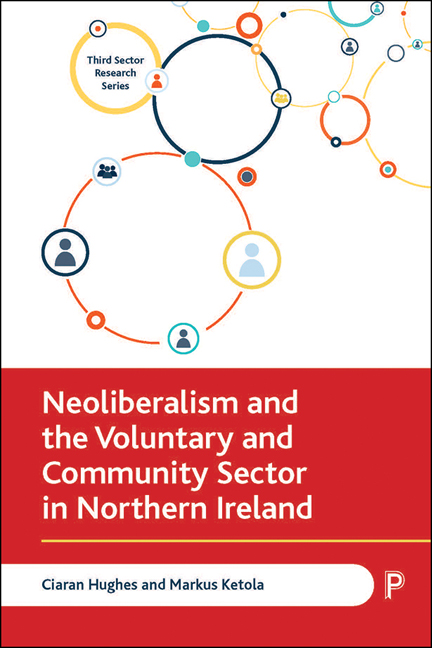Book contents
- Frontmatter
- Contents
- List of abbreviations
- Acknowledgements
- Series editor’s foreword
- one Introduction
- two Neoliberal enrolment? The ‘partnership turn’ in government rhetoric and policy
- three Getting connected: celebrating the value of connections and networks
- four Inside the networks: the rhetoric and the reality
- five Independence of voice, purpose and action
- six Conclusion
- Notes
- References
- Index
four - Inside the networks: the rhetoric and the reality
Published online by Cambridge University Press: 30 April 2022
- Frontmatter
- Contents
- List of abbreviations
- Acknowledgements
- Series editor’s foreword
- one Introduction
- two Neoliberal enrolment? The ‘partnership turn’ in government rhetoric and policy
- three Getting connected: celebrating the value of connections and networks
- four Inside the networks: the rhetoric and the reality
- five Independence of voice, purpose and action
- six Conclusion
- Notes
- References
- Index
Summary
Chapter Three presented a particular representation of voluntary and community action, networks, relationship building and civil society–government engagement. The interviewees suggested that networks and connectedness promote the development of social capital and allow different actors to come together to discuss issues, share information and deal with problems impacting on communities or specific groups. One of the claims made for having the ‘special relationship’ between the VCS and government is that the VCS acts as ‘advocates for communities, families and people’, and that it provides a unique insight into community need (DSD, 2011). Officials certainly recognise the funded and service-providing sector as advocates for specific groups, and decades of network and partnership boosterism, together with substantial funding for the development of civil society, certainly seems to have created enough spaces and mechanisms for this ‘unique insight’ to be put forward to government.
It could be argued that this investment in the VCS has created the connections and infrastructure that allow for a fundamentally new approach to governance, where voices that contradict bureaucratic calculations and dominant opinions are afforded a place in decisionmaking processes. It would seem that this investment has created a new environment where traditional ways of doing things are not necessarily seen as the best way, and that there is room for the VCS's purported tendency towards innovative practice. This is governance that seemingly links disparate and subordinate and dominant groups in joint ventures, where the participants value new ideas and innovative practices. The interviews paint a picture of a form of governance that harnesses all the talents, skills and knowledge of diverse actors. Rather than dictates and hierarchical relationships being the organising mechanism, the partnerships bring diverse actors together to work in a spirit of cooperativeness. The different interests will jointly identify and define problems and issues, and ‘pull in the same direction’ in their efforts to address these problems. The VCS, in this story, is more than a mere policy implementer or service-delivery agent. Instead, the interviewees frame the VCS as a lobbyist for social and policy change, and a valued and influential insider to the decision-making process.
- Type
- Chapter
- Information
- Publisher: Bristol University PressPrint publication year: 2021



